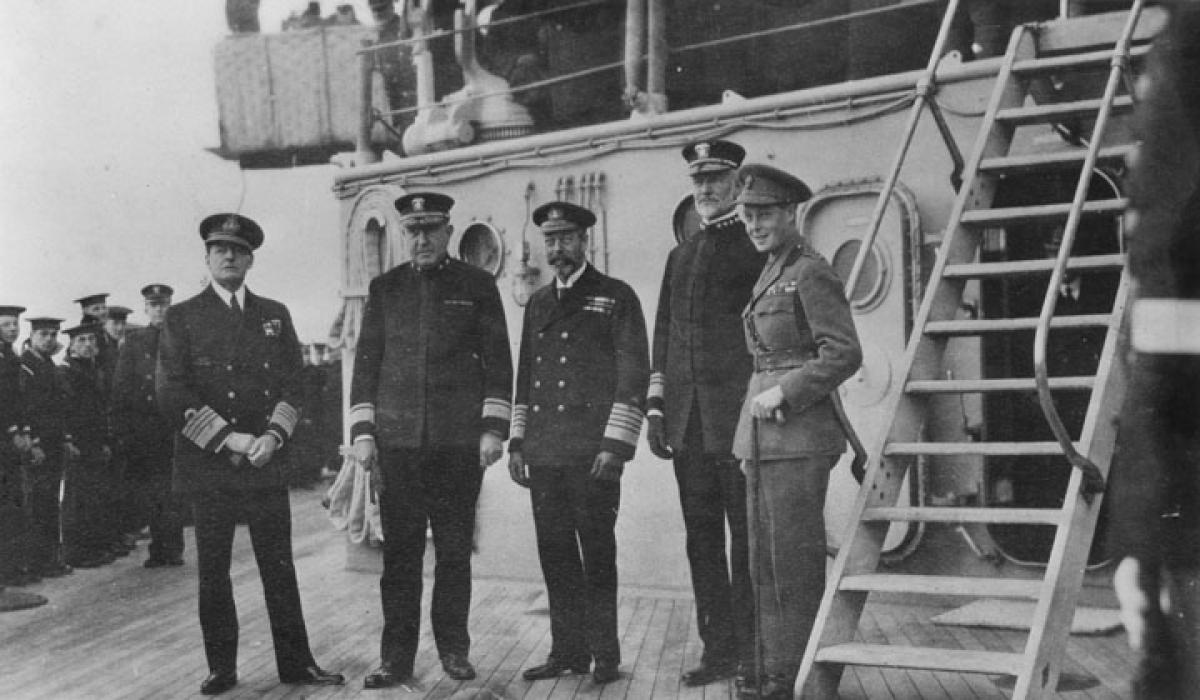It is understandable why William S. Sims was seen by many in his day as a troublemaker. As a lieutenant in 1901, he jumped the chain of command by writing directly to President Theodore Roosevelt to urge major changes in naval gunnery practices. During the early decades of the 20th century, he repeatedly gave speeches and wrote articles in Proceedings that were openly critical of Navy policies and practices that he believed were mired in debilitating conservative attitudes. In 1910, while in command of a battleship on a goodwill cruise to Europe, Sims caused the Navy to issue a general order forbidding naval officers to comment publicly on U.S. foreign policy when he declared to his British hosts, “If the time ever comes when the British Empire is seriously menaced by an external enemy, it is my opinion that you may count on every man, every dollar, every drop of blood of your kindred across the sea.”
When he was sent to Great Britain during World War I, Sims created much controversy by giving the Royal Navy operational control of U.S. ships for antisubmarine operations, a move that was in direct contradiction to the U.S. Army’s policy of maintaining control of its forces. After the war, he got into a heated public battle over naval policies with Secretary of the Navy Josephus Daniels and Chief of Naval Operations Admiral William S. Benson that ultimately led to five months of disagreeable hearings in the Senate Naval Affairs Committee, which did little to enhance the Navy’s public reputation.
Sims was labeled an iconoclast, an Anglophile, and worse by many of his contemporaries. Yet the Navy has subsequently seen fit to name no fewer than four ships after him, as well as the main wargaming facility (until 1999) at the Naval War College. This apparent incongruity can be resolved by the realization that Sims was not merely a complainer but was also a visionary who not only saw the problems of his day but dared to bring them to light, doing much to solve many of them.
His letter to the President while a mere lieutenant resonated with Roosevelt and led to significant improvements in naval gunnery. His continued outspokenness brought many serious issues to light and eventually led to substantive changes in the Navy’s policies and practices. During World War I, his unpopular command relationship with the British and his insistence (in the face of much opposition) on the implementation of a convoy system helped turn the tide in the vital war in the Atlantic, which not only saved Great Britain from logistical defeat and ensured that American soldiers were safely transported to Europe, but it also laid the foundation for a mutually supportive British-American relationship that endures to this day and is a cornerstone of U.S. strategy and policy. Sims saw the potential in both air power and submarines long before World War II proved him right. And he was a key member of the group that devised War Plan Orange, which formed the basis of the strategy that ultimately defeated the Japanese in the Pacific.
In a 1922 Proceedings article, Sims decried the resistance to change that too often controlled the Navy and warned that it “has been in certain important cases so very determined as to cause juniors to think twice before placing themselves . . . in opposition to their seniors.” Although his iconoclasm unquestionably cost him at various times in his career, it did not deter him and ultimately served him—and his Navy—well. Today, his legacy is measured not merely by his many accomplishments but by his willingness to repeatedly risk all for what he called “intellectual honesty that is proof against personal ambition and any other influences whatsoever.”



